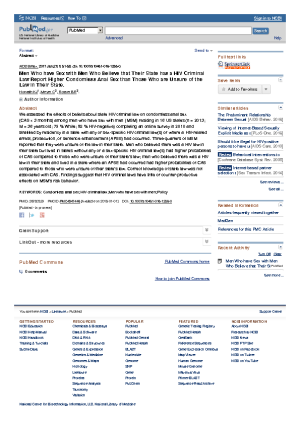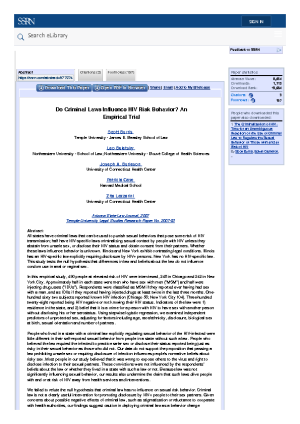Men who have sex with men who believe that their state has a HIV criminal law report higher condomless anal sex than those who are unsure of the law in their state
Found very little variation in the sexual behaviour of gay men living in states with or without HIV specific criminal laws, suggesting legislation has a minimal impact on sexual behaviours. In fact, men who believed they lived in a state with such laws were slightly more likely to have sex without a condom, possible due to a false sense of security – expecting disclosure or protection from the law.
Do criminal laws influence HIV risk behaviour? An empirical trial
Found that people who believed the law required safer sex or disclosure reported being just as risky in their sexual behaviour as those who did not. Most believed it was wrong to expose others to HIV and right to disclose their HIV positive status to their sexual partners. Those beliefs were not influenced by understanding of the law or whether they lived in a state with such a law or not.

